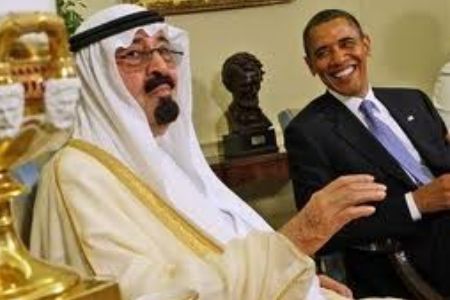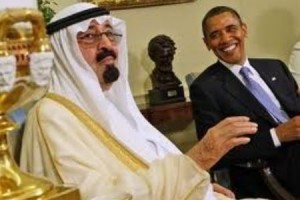Saudi-US alliance props up dictators

 The uprising in Yemen is an unarmed one attracting major political and military defection that could force the ouster of Saleh. The development is a major threat against US and Saudi interests that is unacceptable.
The uprising in Yemen is an unarmed one attracting major political and military defection that could force the ouster of Saleh. The development is a major threat against US and Saudi interests that is unacceptable.
Press TV speaks with Michael Malouf, a former Pentagon official who advises that Saudi troops are in Yemen and that the US-Saudi Arabia alliance is the one thing propping up the dictatorship. As a result, a civil war rather than the acceptance of the people’s demands is a more likely outcome.
Press TV: Considering the reaction or lack of it of the US in terms of Yemen and the brutal crackdown that happened on protesters at the Friday massacre – How can we compare that situation with Libya that is now in the throes of intervention? What makes the situations different?
Michael Malouf: The US is conflicted right now because of what is going on in Yemen. But because of its association and alliance with the Saudis and US investment in Yemen, we have a tremendous amount of counter-insurgency resources involved there to fight al-Qaeda, so the US sees a potential threat to the Saudis.
The Saudis have been sending troops into Yemen to fight rebel groups. I think the US role in Yemen is actually consistent with Libya as Libya and Saudi Arabia have been at odds with each other for years. Gaddafi and King Abdullah have a hate relationship with each other – each accusing one another of being a US/UK spy agency.
For the US and for Saudi Arabia I think Yemen, Bahrain and Libya are serious developments not only for Saudi Arabia because it threatens their regime and position vis e vis Iran, but also the US investment in the entire region is predicated on Saudi Arabia, maintaining its status quo and stability, which has always been the key factor for the Saudis and the US and that’s why the US for years has been supporting these autocrats. Now it’s all coming apart at the seams and the US finds itself fumbling around.
In Yemen there is a separate issue of the fight against al-Qaeda and Saleh’s half brother who has defected today, has control over the counter-insurgency and is regarded as a conservative Islamist and I think that if the president were to leave that he probably would be in a very strong position to take over, which would bode ill for the US and also for Saudi Arabia. The whole US Saudi tie is interwoven.
Press TV: What are the options for Saleh – stepping down; dealing harsher with the protesters? – If you could put that into the context of the army generals that have brought tanks to defend the people – How do you see future developments in Yemen?
Michael Malouf: My personal opinion is that we’re headed for a civil war in Yemen as some of your other analysts have said also. As long as the US and Saudi Arabia is backing the president, he’s going to feel emboldened to continue on.
From the US standpoint, that is a very strategic area and they will try to help him as much as possible to hang on. He did say he wanted to stay on until the end of his term in 2013, but I think that will create problems inside meaning the longer stays on the intensity of the conflict is going to grow internally and I think you may see a second civil war being Libya and Yemen.
Press TV: Considering the alliance between the US and Saudi Arabia in the context of the problems Saudi Arabia itself is having inside the country with protests – Are they going to be spread too thin in terms of trying to put out the fires of Yemen, Bahrain and internally?
Michael Malouf: The Saudis will rely on the US as a backup. Certainly the Saudis feel threatened externally more at the moment than internally, but the see what is happening externally as problematic for internal dissention up in the eastern province – in which they put that down very very ruthlessly.
What’s happening in Bahrain and Yemen is a direct threat to Saudi interests and the US has a lot at stake in backing the Saudis and it cannot be looked upon as deserting. And if you notice the US has never condemned or called for the removal of the monarchy in Bahrain and has paid lip service to the Saudis introducing troops there in which they have offered little criticism and called for reform. They’re not calling for the removal of these autocrats.
The US is in a quandary as to how it is going to deal with this – we saw in Egypt earlier, they were flip flopping back and forth and giving miss-cues. And as a consequence, I think US influence in the Middle East really has evaporated.







